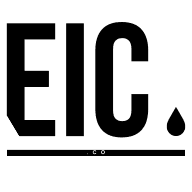In the dynamic world of publishing, the strength of an editorial team can make or break the success of any venture. This blog post aims to provide a comprehensive guide on how to build a successful editorial team. We'll delve into the key elements that contribute to the effectiveness of such a team, from choosing the right people to fostering a conducive work environment.
Identifying the Right Talent
Building a successful editorial team starts with identifying the right talent. You need individuals who are not only skilled in their respective roles but also passionate about the work they do. Look for editors who have a keen eye for detail, writers who can craft compelling narratives, and designers who can bring those narratives to life visually.
The hiring process should be thorough and rigorous. Don't rush to fill positions. Instead, take the time to find the perfect fit for each role. This might mean conducting multiple rounds of interviews, asking for work samples, or even giving potential hires a small test project.
Remember, diversity is key. A team made up of individuals with different backgrounds, experiences, and perspectives will be more creative and innovative. So, strive to build a team that reflects the diverse world we live in.
Fostering a Collaborative Environment
Once you've assembled your team, the next step is to foster a collaborative environment. Collaboration is the lifeblood of any successful editorial team. It allows for the free flow of ideas, encourages creativity, and leads to better problem-solving.
Start by setting clear expectations. Everyone on the team should know what their roles are, what tasks they're responsible for, and how their work contributes to the overall goals of the team. This clarity will help prevent misunderstandings and conflicts down the line.
Promote open communication. Encourage team members to share their ideas, voice their concerns, and provide feedback. This can be done through regular team meetings, one-on-one check-ins, or even a dedicated communication platform.
Lastly, celebrate successes. Recognizing the hard work and achievements of your team members will boost morale and foster a sense of camaraderie.
Implementing Effective Workflow Processes
An effective workflow is crucial for a successful editorial team. It ensures that tasks are completed on time, resources are used efficiently, and the quality of work is maintained.
Start by mapping out your workflow. Identify each step in the process, from content ideation to publication. This will give you a clear picture of how work flows through your team and where potential bottlenecks might occur.
Next, implement tools and systems to manage your workflow. This could be a project management tool, a content calendar, or even a simple spreadsheet. The key is to have a system that allows you to track tasks, deadlines, and progress.
Lastly, regularly review and refine your workflow. As your team grows and evolves, so too should your processes. Be open to feedback from your team and willing to make changes as needed.
Encouraging Professional Development
A successful editorial team is one that continues to learn and grow. Encouraging professional development is a great way to ensure your team stays at the top of their game.
Provide opportunities for learning. This could be in the form of workshops, online courses, or industry conferences. Not only will this help your team members improve their skills, but it will also show them that you value their growth.
Encourage mentorship. Pairing less experienced team members with more seasoned ones can be a great way for them to learn and grow. It can also strengthen the bonds within your team.
Lastly, make time for reflection and feedback. Regularly review your team's work, discuss what's working and what's not, and brainstorm ways to improve. This will help your team learn from their experiences and continually improve their work.
Nurturing a Positive Team Culture
A positive team culture is the glue that holds a successful editorial team together. It's what motivates your team, keeps them engaged, and makes them feel valued.
Start by defining your team's values. What do you stand for? What are your guiding principles? These values should guide your team's actions and decisions.
Promote work-life balance. While it's important to be dedicated to your work, it's equally important to take care of your personal well-being. Encourage your team to take breaks, set boundaries, and prioritize their health.
Lastly, foster a sense of community. Organize team-building activities, celebrate birthdays and milestones, and create spaces for casual conversation. These efforts will help your team feel connected and valued.
Embracing Change and Innovation
In the ever-evolving world of publishing, a successful editorial team must be adaptable and innovative. Embracing change and innovation will keep your team ahead of the curve and ensure your continued success.
Stay abreast of industry trends. Regularly read industry news, attend webinars and conferences, and network with other professionals. This will help you stay informed and bring fresh ideas to your team.
Encourage experimentation. Allow your team to try new things, take risks, and learn from their failures. This will foster a culture of innovation and continuous improvement.
Lastly, be flexible. Be willing to change your plans, adjust your strategies, and pivot when necessary. This adaptability will help your team navigate any challenges that come your way.
Building a Winning Editorial Team: Key Takeaways
Building a successful editorial team is no small feat. It requires careful selection of talent, fostering a collaborative environment, implementing effective workflow processes, encouraging professional development, nurturing a positive team culture, and embracing change and innovation. By focusing on these key areas, you can craft a winning editorial team that's equipped to produce high-quality content, meet deadlines, and exceed expectations.

